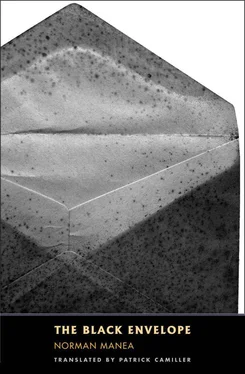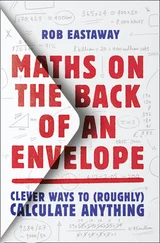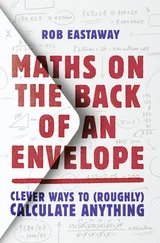DOMINIC WAS NOT DR.Marga’s patient. No, he wasn’t. There would have had to be indecent consultations for which neither seemed prepared. Dr. Marga probably still saw in the muddled over-fifty the same shy adolescent of yesteryear, the brother of his former friend Mircea Claudiu.
The problems with which Professor Anatol Dominic Vancea Voinov appeared one morning at Marga’s consulting room, trying to explain the reasons for his dismissal and the implications of the trial he had been forced to undergo, had aroused the doctor’s compassion and goodwill. He was ready to help the outcast escape his troubles; that is, move from the provinces to Bucharest and find a job and a room, rather than to investigate and amplify his confessions or to suggest treatment for something that was not clearly an illness. He never alluded to those unpleasant events. But of course he registered everything, the kindhearted psychiatrist, mother of wounded souls, humanist debauchee. The professionals of ruin do not need many words before they recognize a client. They look out the window, admire the landscape, light their pipe with an air of preoccupation, but also catch the nuances that give the game away. Attentive to intonation and the order disorder of the words, peeping to see what you’re doing with your hands and eyebrows, whether you have shaved carelessly or for some reason are wearing a foppish red scarf.
No, Herr Doktor did not mention the scandal of his dismissal from his teaching post, nor that that was in fact why they had surprisingly met again. He did not want to appear tactless, probably; or that people should think he totted up his good deeds.
In the rear of the confessional, however, the professional was watching, registering, connecting. He did not manage to shake off the pressure of the secret consultation, hidden in the most banal dialogue of the doctor’s routine police activity. Nor did he say a word about the accident from teenage years, although in his mind’s eye he certainly often saw again the schoolboy’s bicycle suddenly hitting the shapeless, greenish, shadowy old crock of a woman, the curse of all the hours that followed in the history of the Vancea family. Nor did he sound him out about the episode of Marcu Vancea’s death. He did not ask when how where Dida met her end, or about his former colleague Mircea Claudiu and his icy German wife in heat. No, Dr. Marga, with his heart of gold, Lacrima Christi, respected the discretion required by his Hippocratic oath, dulcissime . A dulcissime frater, Señor Marga! Served by piss artist Bazil dressed in livery, fed by Lady Jeny with her alms, cats, and many layers of playacting, and occasionally entertained — no? — by Tolea the clown, as the therapy recommended: Let’s look after the clothing, belly, and good humor of our good old doctor, his delicate soul and delicate stomach and delicate purse. All he had asked about, delicately, was Sonia. When he found himself in front of the door with an airy gentleman who introduced himself as Vancea and claimed to be the youngest son of Marcu Vancea, philosopher turned wine stockist, and the strange Dida Voinov, Dr. Marga had asked about Sonia. Only then, at the first visit. Whether she was really married to that massive, quarrelsome prophet. Dominic had remained silent, thereby confirming it. So, married to that Matus — as if he actually knew everything. Years of life under canvas, in the desert, where Sonia had given birth to her first daughter and Matus had been injured by a shell splinter. Aha, so they played at being settlers, the doctor had mumbled, avoiding his guest’s searching gaze. Yes, yes, I’ve heard they lived like real pioneers, in a tent, under blazing heat and wind and bullets — and he smiled, delicately. She may well still be beautiful, he mumbled. She shook us all up in those days, he added, just as the fifty-something teenager was preparing to ask about that Octavian. Marga sensed the danger, of course. So he took him by the shoulders and led him into the house and plied him with questions about the high-school scandal, the trial and expulsion, and then never touched again, unless forced to do so, on the theme of the moral and political trial that he was at pains to avoid. But not as a doctor, oh no. As a friend, do you hear, as a friend! It was also as a friend that he now wanted to push Irina down his throat! Not as a doctor — as a telltale friend, do you hear?!
Recently he had been talking to him about nothing other than Irina. What miracle was the humanist expecting, what was the lieber Freund Freud hoping for? To hear what? Why he no longer wants Irina, or why he no longer wants to want her? Or what? Has everyone always felt the same, since long ago, while knowing they are no longer alien— Is the alien within us nevertheless forced to admit that it is alien, to its own body, not just to its aged soul and cloddish mind? Horror of one’s own body? Yes, clever Marga would be capable of such a clever question.
Is it that secret shyness we had as adolescents and find again in the proximity of adolescents, Herr Doktor? A potentiality, Doctor, a trembling? Illicit camaraderie, which creates its own cruelties but does not lose that hazy, intense chord, that musical giddiness of April, when spring drugs inject fire into our weary blood. Still young, ye gods! As if we didn’t know about the filthy hag we were bound to hit, as if we were still capable of keeping the handlebars straight. As if the lie promise illusion — what melodramas call the cavalcade of youth— could face the sun and moon, as if, as if … the monster Orest didn’t exist, or the Tranzit brothel or the masks of dark remembrance. We don’t care, Doctor: here’s a big spit on all your rules and routine! Suffering exults more simply and more complexly than in your treatises on therapy, than in your vaccinated soul, Frater Horatius. Is it the magic of the illicit, in this dwarfish world suffocated by hunters lying in wait for their prey? Simpler and more complex than so much else, really.
The moment had come at last. Dominic had suddenly decided to have a real talk with the friend of his father and brother, who claimed to be his friend as well.
He would appear, hurried and resolute, in front of the room of mystification.
Anatol Dominic Vancea Voinov no longer had the patience to wait until evening to visit Counselor Marga’s home. He would go to the hospital, to the popular consulting room, where History daily writes its sarcastic reports. He would finally clear up the parentheses … The accident, the hospitalization of the old woman hit by the schoolboy cyclist, the death of Marcu Vancea, the Association of Exemplary Deaf-Mutes of the Future, the new man Cu  a, the Ghost of Hobgoblin Photographer Octavian Cu
a, the Ghost of Hobgoblin Photographer Octavian Cu  a. The morality scandal concerning high-school teacher Vancea Voinov. The police informers who worked at the hotel alongside receptionist Vancea Voinov. Veturia and Marcel, neighbors of wanderer Vancea Voinov. Everything, absolutely everything, until the doctor finally divulges the recipe for survival in the throng that races and sighs and eats its fellows and spies on its fellows and buries its fellows and multiplies, keeps multiplying, and multiplies its ever more cunning reflexes of survival. Yes, he was ready, he had decided. Quick, quick, straight to the consulting room, to the hospital.
a. The morality scandal concerning high-school teacher Vancea Voinov. The police informers who worked at the hotel alongside receptionist Vancea Voinov. Veturia and Marcel, neighbors of wanderer Vancea Voinov. Everything, absolutely everything, until the doctor finally divulges the recipe for survival in the throng that races and sighs and eats its fellows and spies on its fellows and buries its fellows and multiplies, keeps multiplying, and multiplies its ever more cunning reflexes of survival. Yes, he was ready, he had decided. Quick, quick, straight to the consulting room, to the hospital.
“Has something happened? What’s up?”
“Well … nothing.”
“That is?”
The doctor would take off his glasses and pass his hand over his forehead, over his eyes. He would open his right, healthy eye; he would close his left, glass eye. Tired, too tired, he would replace his glasses and again pass his hand over his forehead. He would make a sign to his assistant, the policewoman Ortansa Teodosiu, wife of Boss Gic  , for her to leave the room.
, for her to leave the room.
Читать дальше

 a, the Ghost of Hobgoblin Photographer Octavian Cu
a, the Ghost of Hobgoblin Photographer Octavian Cu  , for her to leave the room.
, for her to leave the room.










